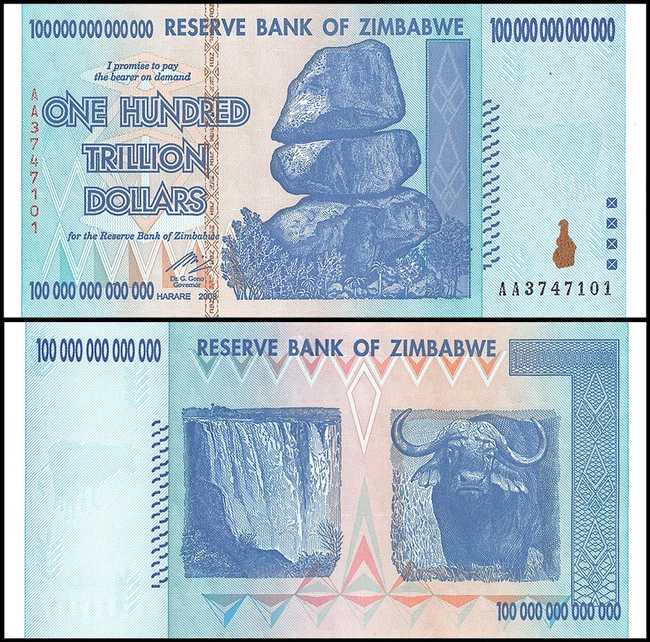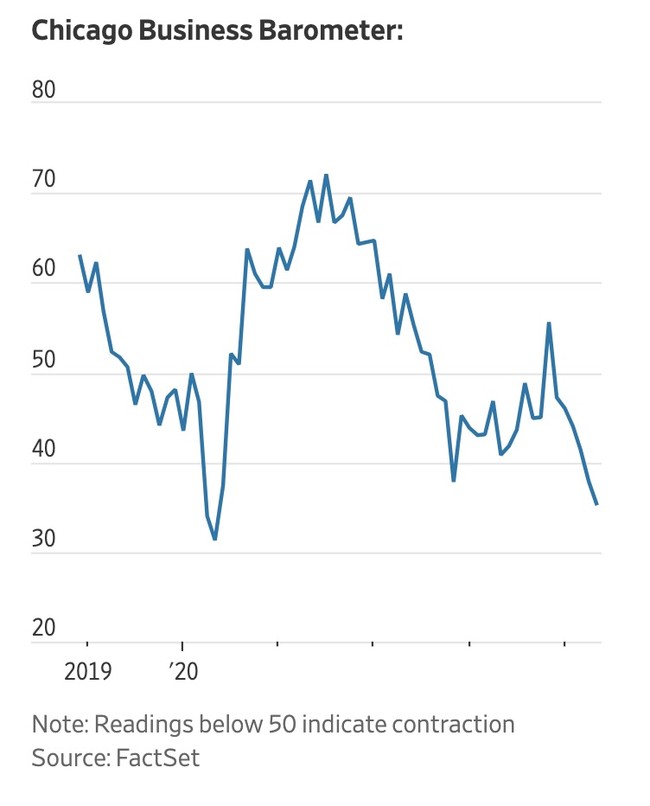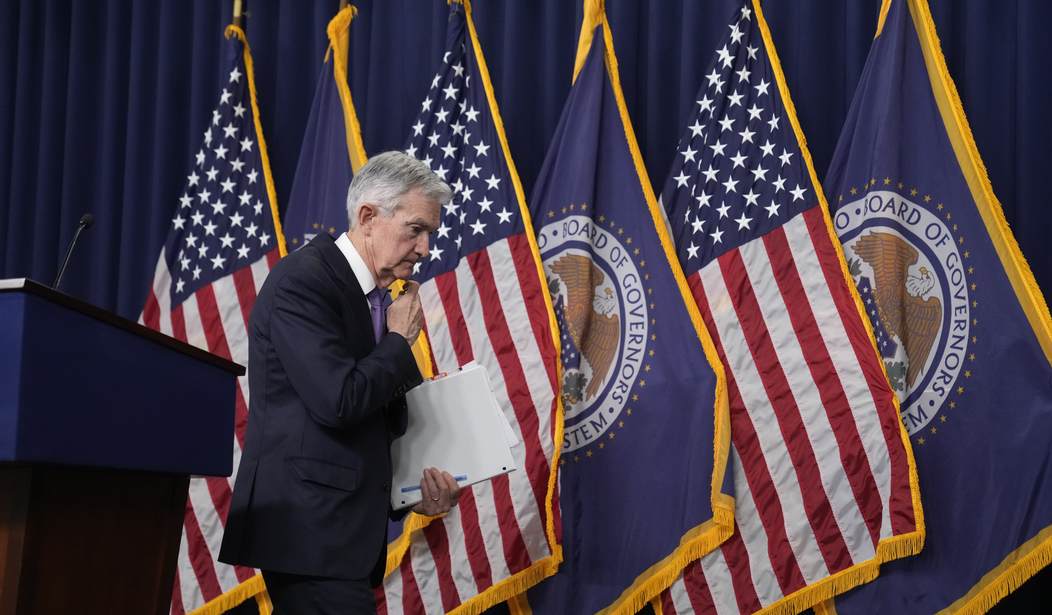Joe Biden and his fluffers keep insisting that the economy is roaring, that Americans have never had it better, and we are all stupid for not being grateful to him. The vast majority of Americans are being misled by Fox News or something.
A former student Aaron Back (Deputy Editor of the WSJ's "Heard on the Street") writes today:
— Steve Hanke (@steve_hanke) June 3, 2024
"The U.S. economy continues to lose momentum."
Economic slowdowns always follow money supply contractions.
MONEY DOMINATES.https://t.co/zGHMNdQJfz
The economy is slowing, real income is declining, and inflation is still well above the Fed's target of 2%.
The U.S. economy continues to lose momentum. Growth hasn’t yet slowed to the point that it would be a concern to policymakers, but it might soon if current trends continue.
Investors’ attention on Friday was initially focused on the personal-consumption expenditures price index, part of a package of data released by the Commerce Department. That makes sense since it is the Federal Reserve’s preferred measure of inflation and will help them decide whether or not to cut rates before November’s U.S. presidential election. But accompanying data on underlying economic activity turned out to be more significant.
The PCE price index rose 2.7% from a year earlier in April, in line with economists’ expectations and unchanged from the prior month. The core PCE price index that strips out food and energy, which the Fed favors, was up 2.8%, a tad more than expected.
More noteworthy were the figures for personal income and consumption. Incomes rose 0.3% from the preceding month, in line with expectations and down from 0.5% growth in March. Personal spending rose just 0.2%, below expectations and slowing from 0.7% in March. In real, inflation-adjusted terms consumption and disposable incomes both fell 0.1%.
With Jaren Bernstein in charge of advising the president, perhaps Biden and his Council of Economic Advisors actually don't understand that declining personal income and consumption translate into life getting worse for Americans. They may believe that the nominal dollar increases mean something.
This is absolutely priceless. And probably the most frightening clip you'll ever watch on the people in charge of the US economy.
— Arnaud Bertrand (@RnaudBertrand) May 3, 2024
Jared Bernstein is literally the Chair of the Council of Economic Advisers, the main agency advising Biden on economic policypic.twitter.com/1b31FPFPCQ
Soon we can all be just as rich as Zimbabweans.

Also on Friday, the Chicago Business Barometer, also known as the Chicago purchasing managers index and a gauge of economic activity in the region, fell to 35.4 in May from 37.9 in April. The importance of regional PMIs shouldn’t be exaggerated, but this one seemed more noteworthy than most. It was at its lowest since May 2020, during the lockdown period of the pandemic, according to FactSet.
All those readings came on the heels of a downward revision in first-quarter gross domestic product growth on Thursday, to an annualized 1.3% from an earlier estimate of 1.6%. It was mainly driven by a declining estimate of consumption, again suggesting a flagging consumer. In a note, economists at Capital Economics said they are now expecting growth of just 1.2% in the second quarter, down from an estimate of 2.7% a couple of weeks ago.
For some reason all those revisions in initially rosy economic numbers point downward. That is an amazing coincidence. The drop in consumption growth by more than half is, well, pretty staggering.
All this puts the Fed in something of a bind. Inflation is higher than their target, but the economy is slowing right in the middle of an election season. They aren't supposed to care about that, but we all know they do in the real world.
Also on Friday, the Chicago Business Barometer, also known as the Chicago purchasing managers index and a gauge of economic activity in the region, fell to 35.4 in May from 37.9 in April. The importance of regional PMIs shouldn’t be exaggerated, but this one seemed more noteworthy than most. It was at its lowest since May 2020, during the lockdown period of the pandemic, according to FactSet.
All those readings came on the heels of a downward revision in first-quarter gross domestic product growth on Thursday, to an annualized 1.3% from an earlier estimate of 1.6%. It was mainly driven by a declining estimate of consumption, again suggesting a flagging consumer. In a note, economists at Capital Economics said they are now expecting growth of just 1.2% in the second quarter, down from an estimate of 2.7% a couple of weeks ago.
As a practical matter, the rise in interest rates is all about slowing the economy to contain inflation, but there is a persistent fantasy that the economy is so easily tuned that a "soft landing" can be managed. That's the theory, but the reality is not so rosy.

It's not good when your economic indicators look similar to those during the pandemic lockdown. Just sayin'.
Does this mean that we are headed toward a recession? For all practical purposes, consumers are experiencing a recession--not a technical one, of course, but a recession in their buying power and savings. Thankfully, their jobs aren't evaporating in large numbers yet, but their economic well-being is moving in the wrong direction.
And they know it. Just ask them. The statistics don't matter to them, just the reality on the ground.








Join the conversation as a VIP Member